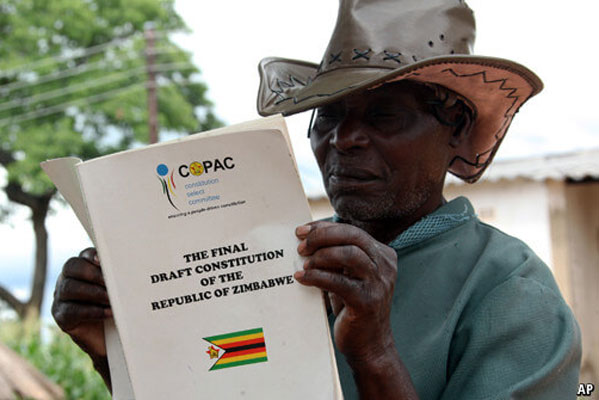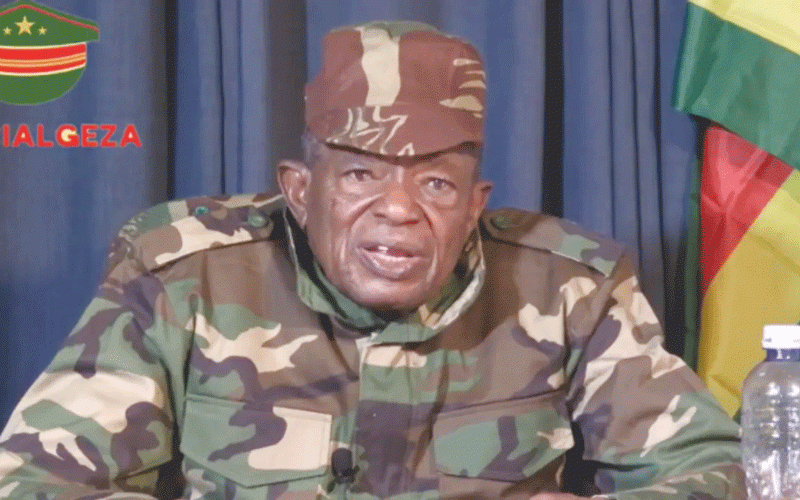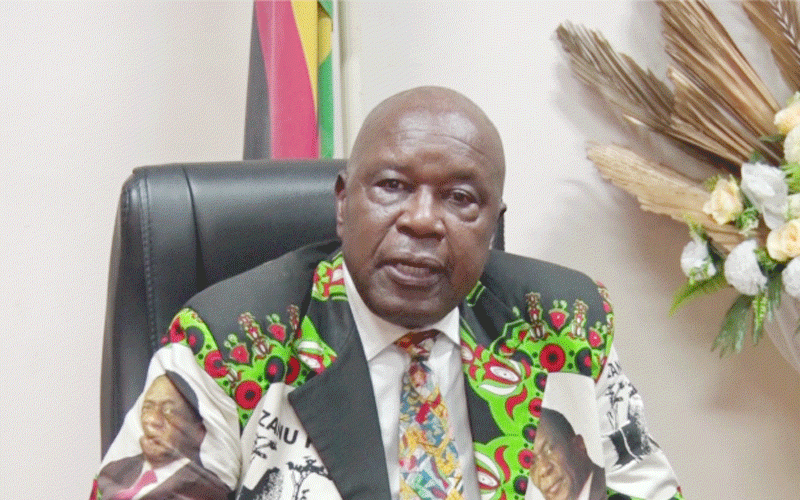
news in depth: BY EVERSON MUSHAVA
Pressure is mounting on President Emmerson Mnangagwa to abandon plans to amend the constitution with civil society groups plotting campaigns to derail the process.
The government last year gazetted the Constitutional Amendment Bill No.2, which seeks to introduce at least 27 amendments to the constitution that was only adopted in 2013 through an overwhelming 94.49% voter support at a referendum.
Mnangagwa has been accused of trying to use the controversial amendments to create an imperial presidency and reduce Parliament’s oversight role.
If passed by Parliament, where Zanu PF enjoys a two-thirds majority, the running mate clause for vice-presidents will be scrapped and the president will be given the sole powers to appoint judicial officers such as judges and the prosecutor-general.
The proposed amendments will increase the number of ministers without parliamentary seats and limit Parliament’s powers in the adoption of international treaties, among other far-reaching governance issues.
Mnangagwa, who came into power on the back of a 2017 military coup that toppled long-time ruler Robert Mugabe, is, however, facing growing opposition even from his allies in the Political Actors Dialogue (Polad).
Lovemore Madhuku, a key Polad member and leader of the National Constitutional Assembly, has become one of the most vocal critics of the amendments.
- Chamisa under fire over US$120K donation
- Mavhunga puts DeMbare into Chibuku quarterfinals
- Pension funds bet on Cabora Bassa oilfields
- Councils defy govt fire tender directive
Keep Reading
A group of women leaders last Thursday wrote 1 000 letters to Parliament rejecting the proposed amendments.
Aspiring women leaders that took part in the protest are particularly not happy about proposals to extend the women’s parliamentary quota system by 10 years.
They argued that the extension of the quota system through a constitutional amendment was a ploy to avoid aligning laws with the new constitution, a move that can ensure gender parity.
“The women leaders were clear that what is needed is to fully implement sections 17, 56 and 80 of the constitution, which clearly provide for gender equality in Parliament and all other leadership positions that include community level positions,” said the Women’s Academy for Leadership and Political Excellence (Walpe), which coordinated the protest.
“These positions are critical for women to occupy as key developmental decisions that affect women and girls more are made at these levels,” the organisation added.
Walpe’s stance came on the back of a campaign by the Crisis Zimbabwe Coalition (CiZC) to stop the proposed amendments amid fears that they will erode democracy in the country.
“Zimbabwe is at risk of sliding into a de facto one-party state where the ruling party has the sole discretion to determine the governance of this country,” CiZC warned.
“The gains made through the new constitution of 2013 risk becoming moot if these amendments sail through.”
Blessing Gorejena, the Zimbabwe Human Rights NGO Forum executive director, said the government’s determination to change the constitution before aligning several laws to the new charter had raised eyebrows.
“There are provisions of the current constitution that we are still to test, what have been the measuring tools to say what worked or didn’t work?” Gorejena queried.
“There is danger in rushing to think of how something could have gone wrong without proper testing and no efforts to evaluate it.
“Why the rush? It is clear there is a motive behind this.”
Gorejena was speaking at a discussion forum for journalists in Harare to help the media to educate Zimbabweans about their constitutional rights.
She said the proposed amendments were an attempt by the ruling elite to consolidate power around the president while weakening Parliament.
“From my understanding, the proposed amendments are meant to consolidate power in the office of the presidency, while reducing the powers of Parliament,” Gorejena said.
“Some people say, everything done procedurally is constitutional, so why cry?
“We are not forgetting that section 3 of the constitution emphasises the supremacy of the constitution as one of our core values.
“We agreed to be bound by that. We are also alike to the same section the principle of accountability. The accountability of our leaders we elect to represent us.
She added: “The question is, one cannot just wake up tomorrow and say we are amending the constitution, bearing in mind the supremacy of the constitution.
“Even if you are the father of the house, can you wake up and say, tomorrow we are no longer eating meat here?
“You need to consult and appreciate the impact of your decisions.”
One of the most contentious proposed amendments seeks to remove the role of citizens in nominating and monitoring the appointments of judiciary officers.
The proposed amendment seeks to give the president powers to appoint judges and the prosecutor-general. Critics say if allowed, the amendment will reduce the judiciary’s independence.
An attempt to introduce a similar amendment was rejected in 2017.
Brian Crozier, a consultant for the legal think- tank Veritas, said the amendments sought to give the government powers to borrow money from non-state institutions without parliamentary scrutiny.
The government wants to change section 327(3) of the constitution and strip Parliament of its oversight role by giving the president powers to enter into agreements with international organisations even if they impose fiscal obligations on Zimbabwe.
Mnangagwa’s government has been raking in billions of dollars through loans with international financiers such as Afreximbank without Parliament’s approval.
Zimbabwe’s external debt now stands at a staggering US$11,5 billion while the domestic debt is estimated at around US$8,5 billion.
Meanwhile, Madhuku urged Zimbabweans to resist the constitutional amendments to stop the ruling party from entrenching its power through the back door.
Madhuku, who is part of Polad, a group of fringe political leaders involved in dialogue with Mnangagwa, said Zimbabweans must use the debate around the proposed amendment of the constitution to demand electoral reforms.
“The constitution is a living document that should not be changed quite often,” the constitutional law expert said.
“Governments come and go, but that should not be the same with the constitution.
“We have come a long away as the NCA to convince Mugabe then that the constitution should not be the word of the ruling party.”
Madhuku, whose NCA played a crucial role in stopping Zanu PF from imposing a constitution on Zimbabweans 20 years ago, said one of the most dangerous proposed amendments related to the judiciary.
“If you look at the amendments, I will pick one which should never be allowed to be part of the constitution,” he said.
“It is an amendment relating to the judiciary. Everyone wants an independent judiciary. Judges should not be appointed.
“The current constitution requires judges to be appointed through public interviews.
“The proposals now require judges that should retire mandatorily at 70, to retire at 75.
“The judges should submit a certificate to the president who should approve if the judge should proceed to retirement.
“This has been proposed without reason. There is nowhere even in Africa where we have such a thing. We should fight to block Amendment Number 2.”
Madhuku was speaking at another heated debate on the constitutional amendments organised by Heal Zimbabwe in Harare.
CiZC said the amendments threatened to reverse the gains made by Zimbabwe in transforming its democracy following the adoption of the 2013 constitution.
“The Constitution Amendment Bill No.2 of 2019 is one of the biggest threats to civil and political rights in Zimbabwe,” CiZC said.
“Single-handedly, the Bill seeks to take Zimbabwe back to the legacy of the Lancaster House constitution,” crisis said in a statement.
“The Bill returns the Constitution Amendment Bill No.1 of 2017, which was rejected by citizens.”
Mnangagwa has also been accused of trying to use the constitution to fight Zanu PF internal battles with the proposed removal of the running mate clause, which was only going to get into play in 2023.
“Beginning 2023, the constitution provides that the president together with two vice-presidents will now be elected,” CiZC added.
“The Bill removes this provision by giving the president the power to appoint vice-presidents.
“The right of citizens to choose leaders of their choice must be respected and citizens should be accorded the right to self-determination.”
There have been reports of a fierce tussle for power between Mnangagwa and his deputy Constantino Chiwenga, who reportedly wanted to be the Zanu PF candidate in the 2023 elections.
Chiwenga, who was the army commander during the coup, is said to enjoy the backing of the military.
Kudzanai Mashumba from the Zimbabwe Protection Forum said the proposed amendments were against people’s democratic aspirations and must be blocked.
“The amendments seem to be motivated by a narcissistic power concentration agenda and should not be supported by pro-democrats,” Mashumba said.
“Almost all the proposed amendments seem to be driven by the executive.
“If we continue arming the executive with excessive power, we risk becoming a totalitarian state.
“Moreover, the amendments emasculate other key pillars in the state: Parliament and the judiciary.
“Though these two institutions are currently compromised, the situation will be worse once the constitutional amendments become law.”
In 2000, Zimbabweans voted overwhelmingly against a draft constitution that was spearheaded by Zanu PF, which had sidelined its critics during the process.
The outcome of the referendum marked Zanu PF’s first electoral defeat since Zimbabwe’s independence in 1980.
Zimbabwe only adopted a new constitution after Mugabe formed an inclusive government with the late MDC leader Morgan Tsvangirai.









